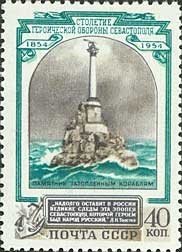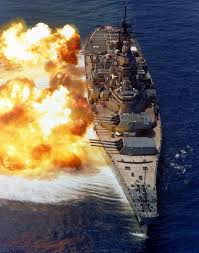Stamp: Monument to the Scuttled Ships in Sevastopol Bay (Soviet Union, USSR 1954)
Monument to the Scuttled Ships in Sevastopol Bay (Soviet Union, USSR 1954)
17 October (Soviet Union, USSR ) within release Military goes into circulation Stamp Monument to the Scuttled Ships in Sevastopol Bay face value 40 Russian kopek
| Stamp Monument to the Scuttled Ships in Sevastopol Bay in catalogues | |
|---|---|
| Michel: | Mi:SU 1728 |
Stamp is square format.
Also in the issue Military:
- Stamp - Monument to the Scuttled Ships in Sevastopol Bay face value 40;
- Stamp - Heroic defenders of Sevastopol face value 60;
- Stamp - Pavel Nakhimov, admiral and head of defence forces face value 1;
Stamp Monument to the Scuttled Ships in Sevastopol Bay it reflects the thematic directions:
A monument is a type of structure that was explicitly created to commemorate a person or event, or which has become relevant to a social group as a part of their remembrance of historic times or cultural heritage, due to its artistic, historical, political, technical or architectural importance. Examples of monuments include statues, (war) memorials, historical buildings, archaeological sites, and cultural assets. If there is a public interest in its preservation, a monument can for example be listed as a UNESCO World Heritage Site. The Palgrave Encyclopedia of Cultural Heritage and Conflict gives the next definition of monument:
Architecture (Latin architectura, from the Greek ἀρχιτέκτων arkhitekton "architect", from ἀρχι- "chief" and τέκτων "builder") is both the process and the product of planning, designing, and constructing buildings and other physical structures. Architectural works, in the material form of buildings, are often perceived as cultural symbols and as works of art. Historical civilizations are often identified with their surviving architectural achievements.
Naval warfare is combat in and on the sea, the ocean, or any other battlespace involving a major body of water such as a large lake or wide river.
A sea is a large body of salty water. There are particular seas and the sea. The sea commonly refers to the World Ocean, the wider body of seawater. Particular seas are either marginal seas, second-order sections of the oceanic sea (e.g. the Mediterranean Sea), or certain large, nearly landlocked bodies of water.




